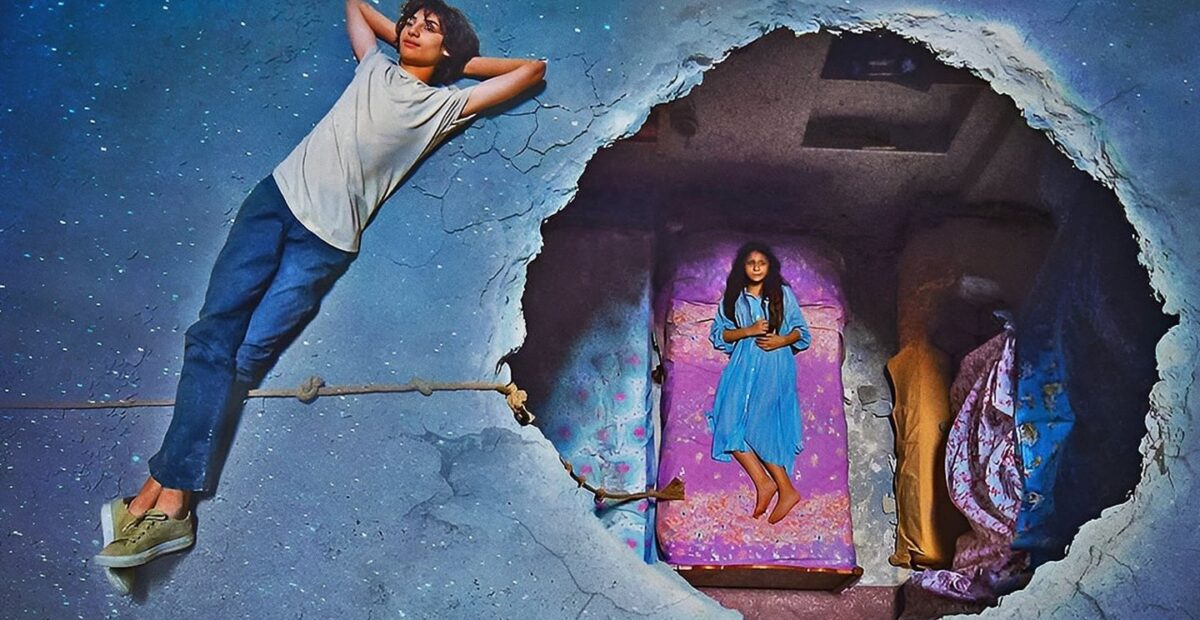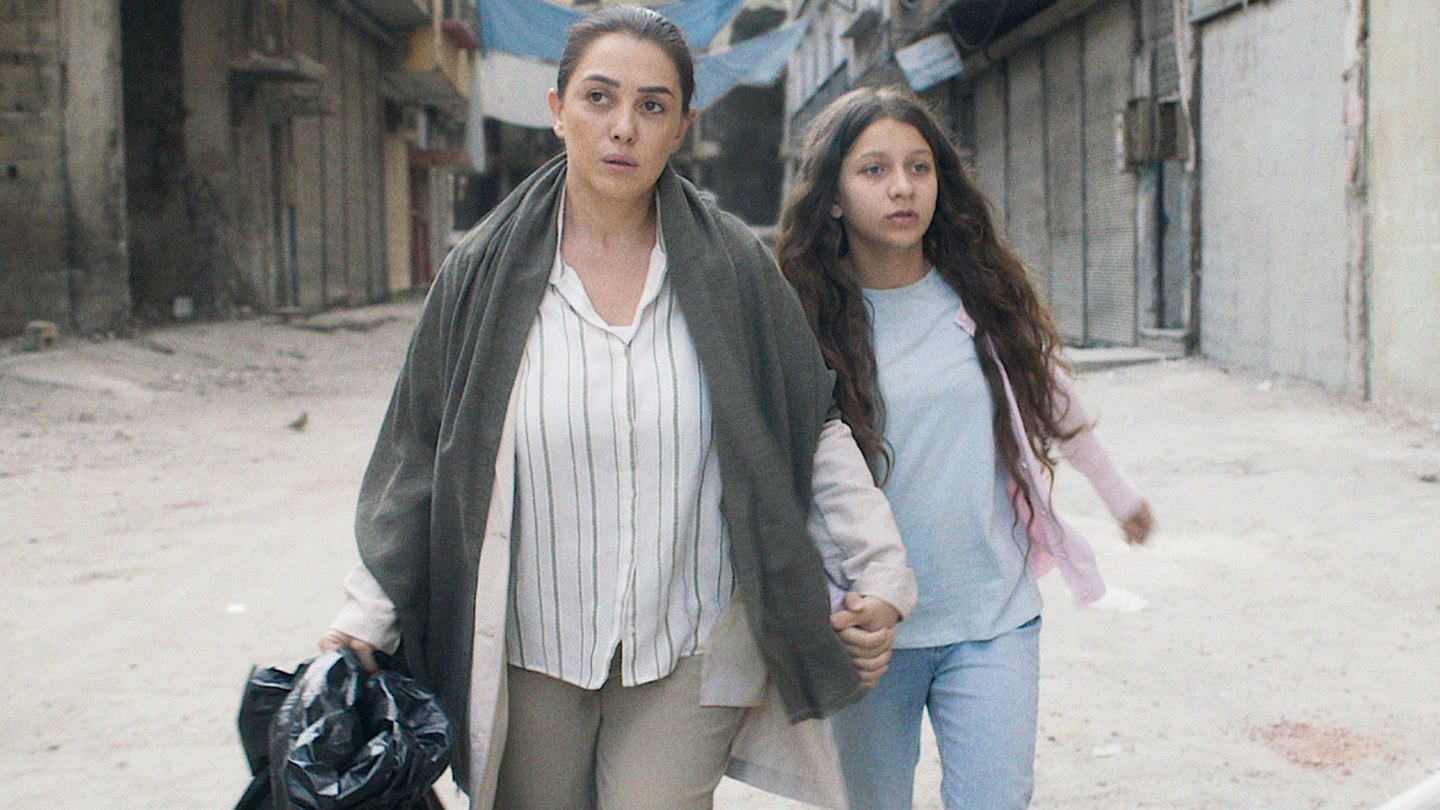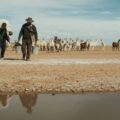
Watch
Poetry against war

A film about war made of poetry: the power of imagination and the interior strength of the youth (and of the women) against the atrocity of the war conflict. A delicate yet intense Syrian film, capable of facing painful themes of our present (and of that of the refugees) without ever being cruel, cleverly using the metaphor, contrasting the beauty of encounter and the power of imagination with the noise and fear of the bombs.
In the handful of strings touched by the beautiful film Nezouh – The hole in the sky (in the theaters, in Italy since the 12th of January), work of the Syrian director, Soudade Kaadan, there are a few – central and intertwined amongst them – that focus on two painful themes of our times (and of the history of humanity in general). They are that of the war and that of the ones who are forced to leave their own country because life there has become impossible.
Set in Damascus, in the city torn by the war, the film, presented in Venice 22 (Orizzonti section) and in the always interesting Medfilm Festival (where it won the Amnesty International Human Rights Award) depicts a conflict, without cruel scenes or bloodshed but with a landscape constantly destroyed and reclusive people, suspended in the surreal conditions of being prisoners of their own home.
This story is that of a family, a father (Motaz), a mother (Hala) and an adolescent daughter (Zeina) forced to live in a building partially destroyed by the bombs, in the city. Around them is a lot of rubble and a very few people, in a space that has almost become metaphysical. On the ripped walls of their home, the father has hung the fragile bed sheets, stubbornly repeating that they can still stay there: “It is my home, I can fix it a hundred times”, he believes while the mother and daughter are the first to understand that the only acceptable condition is that of the refugees. “But look around, it is all broken”, Hala tells her husband, referring to that home that has become (also) the symbol of a lacerating irreconcilability between roots and freedom, between the past and the future.
Within the horror of the war, in fact, the disagreement between the archaic husband, with his gaze turned towards tradition, and that of a woman more capable of grasping the truth and the new, also deepens. That war made of waiting, fear and of some explosion that sometimes includes the home of the protagonists, provokes suffering common to different interiorities, touching the existential balances of each one and obliging one to a loss: of the possibility of remaining, but also of planning, of growing, of changing, of placing dreams and actions in a healthy relationship.
Everyone comes into contact with the constraint in Nezouh, well including little Zeina, who, looking out of the window of life, feels like jumping down: to enter inside it with passion. She does so, even before the body, with the saving power of imagination, elusive and invincible even for the war. She imagines that in place of the stacked stones around her house there is the sea and her sweet thought become concrete images that season the film with a precious magic realism, above all, after a bomb made a hole in the ceiling of their home: that hole becomes a loophole for rays of light and gushes of breeze that bring vitality and hope.

From that circle on the world a “sky full of stars” appears, Amer makes her notice: the neighbor, one of the very few remaining, more or less of the same age as Zeina. “The bombs cannot touch” those stars, he assures her after having lowered a rope and having invited her on the roof to imagine life and liberty together. From up there, the waiting and pain that they endure becomes creativity and dialogue. Amer and Zeina savor fresh fruits together, together they watch, on a wall, through the projector brought by Amer, images of the sea in motion, a symbol of freedom and discovery. Together they fantasize even of fishing: after the boy learns Zeina would like to become a fisher woman when she’s older, he finds her a fishing rod in some abandoned house and the ruins magically become calm and pleasant waters. Within that secret space a full human relationship takes shape, nature and poetry interact, encounter and sharing, imagination and art: instruments of a beauty that counteracts the atrocity of the surrounding war. That roof is the antechamber to freedom, the gymnasium of an awareness preparatory to the journey that Zeina and Hala will begin shortly afterward, initially disentangling themselves in an unrecognizable city and then passing through a tunnel (also metaphorical) that should lead them towards that dreamed sea, inside that journey full of unknowns and often of pain that is the story of contemporary humanity forced to flee their land.
The final caption of the film pays a tribute to all those who are part of it: “For those whom we lost in the war – we read – for the people displaced and for those lost at sea”. Nezouh, in Arab means “the shifting of souls, water and people”, knows to talk to us, nimbly mixing dramatic and fairy tale, realistic and poetic, lightness and gravity, of the strength of the youth (Zeina’s love tries bringing her parents close again), of female emancipation and of the importance of having a dream, continuously portraying of how a war brutally obstructs the potentialities and the primary needs of the human being.
Her simple yet intense story extends to each war and to all the conditions of profound uncertainties; she knows how to make us work on empathy, on the capacity to put ourselves in the clothes of those who live certain harsh realities and entering that relation.





